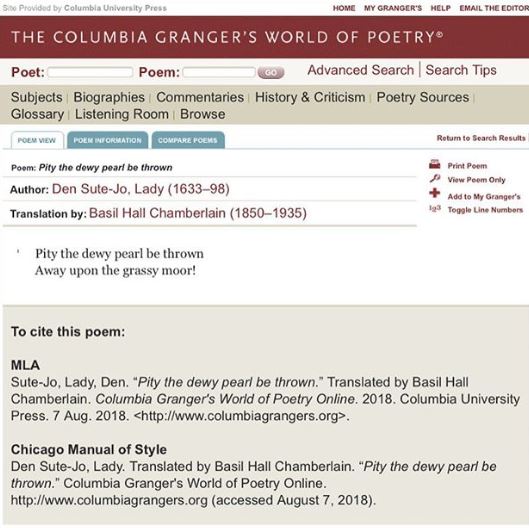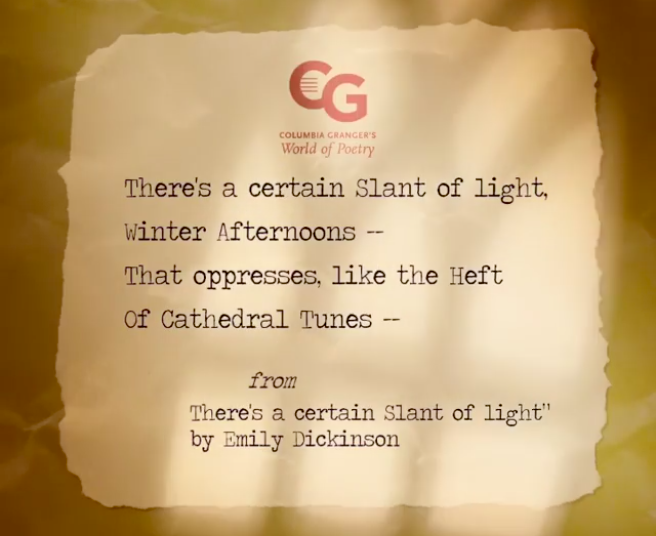Columbia University Press Announces the 2020 Student Poetry Contest Winners!

April was National Poetry Month, and this year, it marked the fourth annual high school poetry contest, in which high school students are invited to submit an original poem inspired by one from the Granger’s database. The contest has grown each year and is open to high schools everywhere, regardless of whether that school subscribes to the database. Submissions have even come from international schools, such as Robert College, an independent high school in Istanbul, Turkey. The winning poems receive a prize of books published by Columbia University Press and its distribution partners, both for the student and the school’s library.
One of this year’s winners, the remarkable “Fire in Song,” by Katherine Vandermel of Bergen County Academies, was inspired by “Song of Napalm” by Bruce Weigl:
Or: the white cottage next door,
the one with the boy. The blossom of
the first bomb one winter morning,
a golden veil falling
over the neighbors.
You can read the rest of Katherine’s poem, as well as the other winning poems for the 2020 competition at The Columbia Granger’s World of Poetry Online. An earlier version of this poem first appeared in Hunger Mountain.
The 2020 winning entries are:
- “Fire in Song, ” by Katherine Vandermel of Bergen County Academies, inspired by “Song of Napalm,” by Bruce Weigl
“Departure in Limbo,” by Emir Kirdan, of Robert College, Istanbul, inspired by “Departure bells / have lingered a while,” by Katayama Yumiko - “Clair de Lune,” by Marie Yamamoto of Northern Valley Old Tappan High School, inspired by “Piano,” by D.H. Lawrence
Honorable Mention:
- “Sea glass,” by Jacklyn Vandermel of Northern Valley Demarest High School, New Jersey, inspired by “The Billowy Ocean,” by Nathaniel Hawthorne
The Columbia Granger’s World of Poetry is one of the press’s online research databases. It is updated weekly with new full-text poems, biographies, and commentaries, offering users access to 250,000 poems in full text with 450,000 poem citations. The database includes all poems indexed since the 8th print edition (1985), a resource that librarians everywhere used widely and that outgrew its physical stature. As a result, the press digitized it over the course of several years, allowing users to search by keyword, first line, last line, subject, school/movement (confessional, imagism, etc.), era, language, nationality, and more.
For more information about Granger’s, you can e-mail Herbert Plummer.







